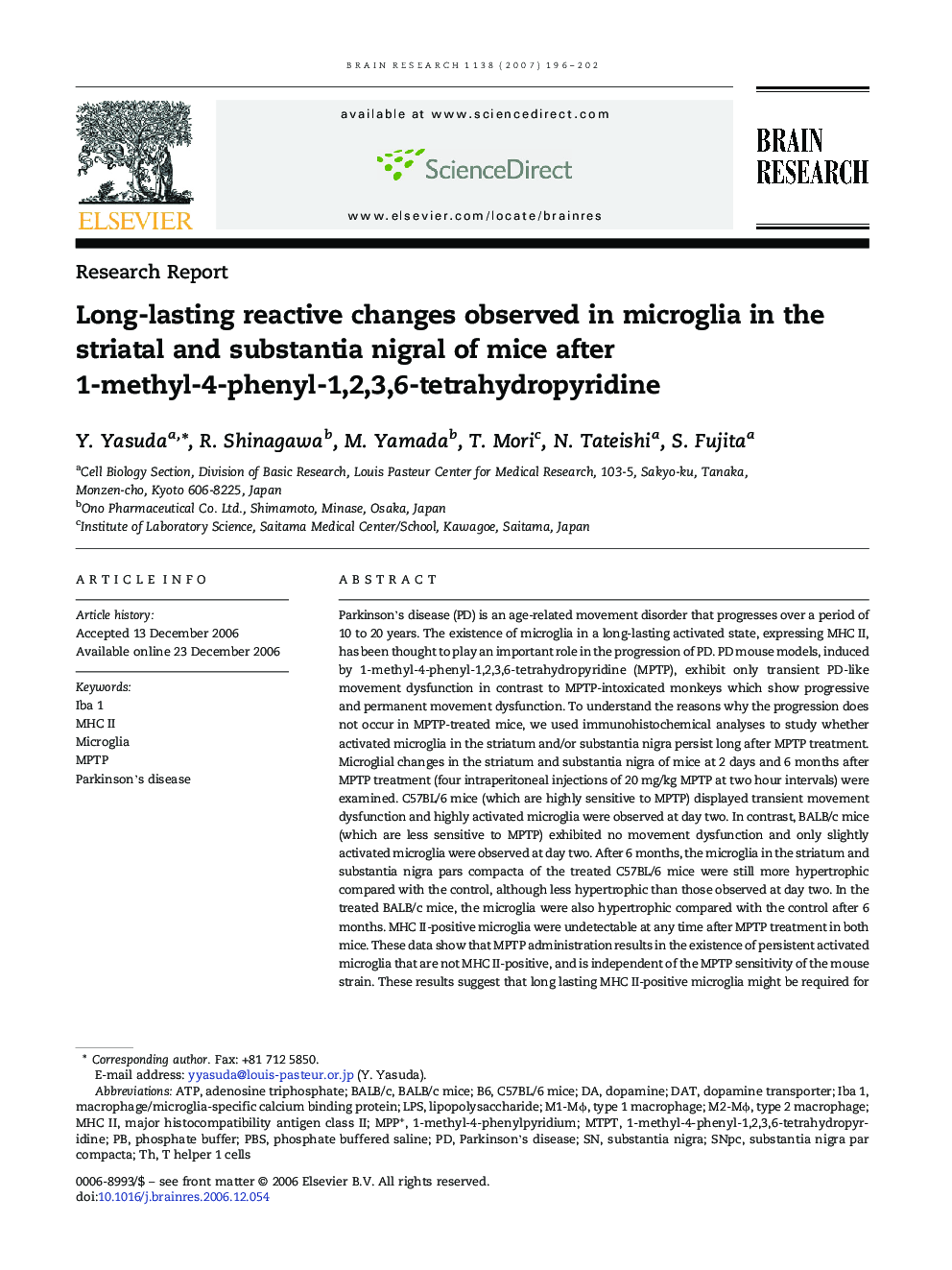| کد مقاله | کد نشریه | سال انتشار | مقاله انگلیسی | نسخه تمام متن |
|---|---|---|---|---|
| 4331456 | 1614301 | 2007 | 7 صفحه PDF | دانلود رایگان |

Parkinson's disease (PD) is an age-related movement disorder that progresses over a period of 10 to 20 years. The existence of microglia in a long-lasting activated state, expressing MHC II, has been thought to play an important role in the progression of PD. PD mouse models, induced by 1-methyl-4-phenyl-1,2,3,6-tetrahydropyridine (MPTP), exhibit only transient PD-like movement dysfunction in contrast to MPTP-intoxicated monkeys which show progressive and permanent movement dysfunction. To understand the reasons why the progression does not occur in MPTP-treated mice, we used immunohistochemical analyses to study whether activated microglia in the striatum and/or substantia nigra persist long after MPTP treatment. Microglial changes in the striatum and substantia nigra of mice at 2 days and 6 months after MPTP treatment (four intraperitoneal injections of 20 mg/kg MPTP at two hour intervals) were examined. C57BL/6 mice (which are highly sensitive to MPTP) displayed transient movement dysfunction and highly activated microglia were observed at day two. In contrast, BALB/c mice (which are less sensitive to MPTP) exhibited no movement dysfunction and only slightly activated microglia were observed at day two. After 6 months, the microglia in the striatum and substantia nigra pars compacta of the treated C57BL/6 mice were still more hypertrophic compared with the control, although less hypertrophic than those observed at day two. In the treated BALB/c mice, the microglia were also hypertrophic compared with the control after 6 months. MHC II-positive microglia were undetectable at any time after MPTP treatment in both mice. These data show that MPTP administration results in the existence of persistent activated microglia that are not MHC II-positive, and is independent of the MPTP sensitivity of the mouse strain. These results suggest that long lasting MHC II-positive microglia might be required for PD progression. In MPTP-intoxicated mice, the absence of MHC II-positive microglia might explain why there is no progression of PD-like dysfunctional symptoms.
Journal: Brain Research - Volume 1138, 23 March 2007, Pages 196–202